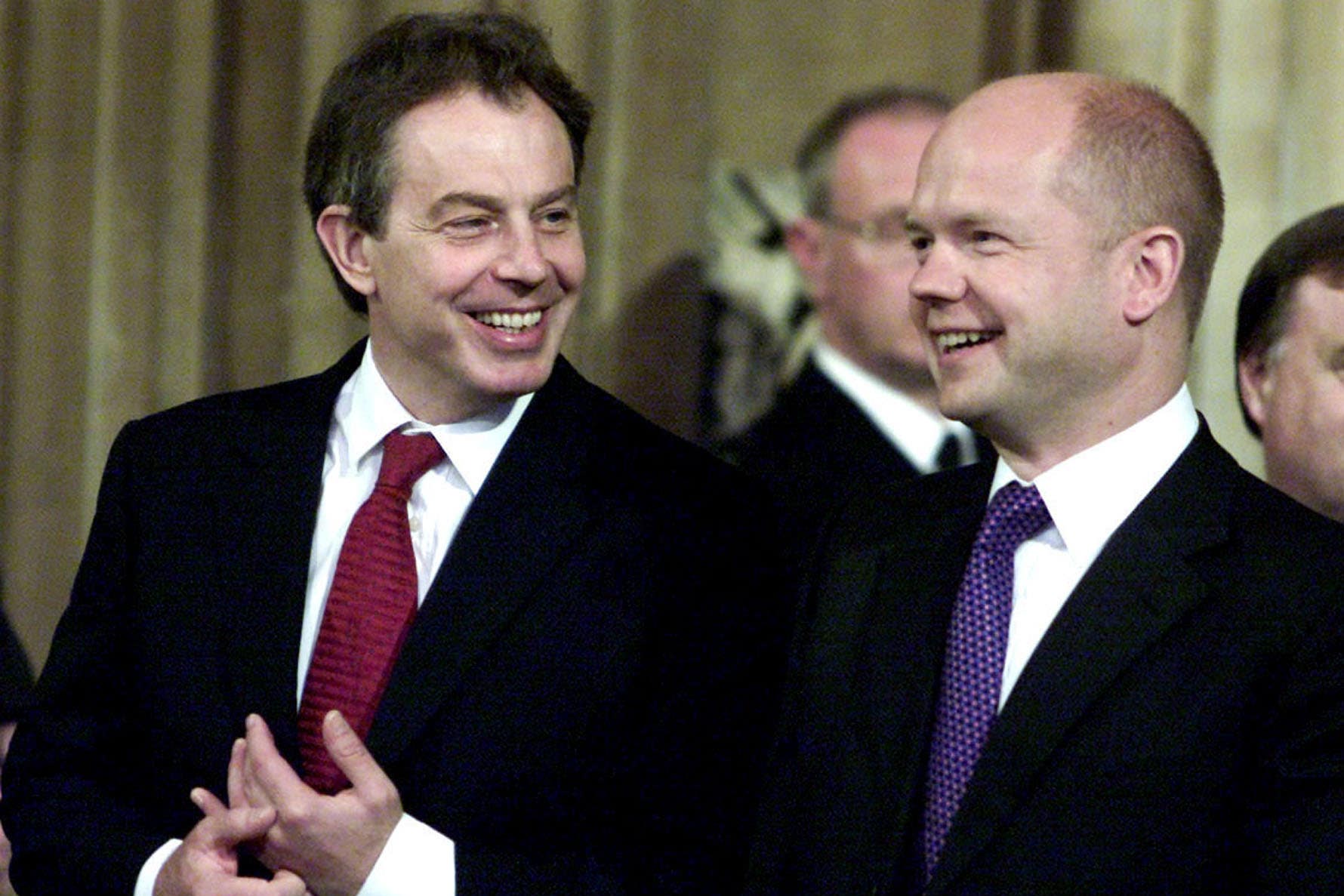Blair urged to duck ‘banal’ TV debate with Tory leader Hague, records show
Newly released government files show Labour aides advised there was nothing to gain from an election head-to-head.

Support truly
independent journalism
Our mission is to deliver unbiased, fact-based reporting that holds power to account and exposes the truth.
Whether $5 or $50, every contribution counts.
Support us to deliver journalism without an agenda.

Louise Thomas
Editor
Prime minister Tony Blair was strongly urged by aides not to give in to opposition demands for a TV debate with his Tory rival in the run-up to the 2001 general election, according to newly released government files.
Televised debates involving the main party leaders have been a feature of UK general elections for more than decade but at the start of the century there was still strong resistance to the idea.
Papers released by the National Archives show that, in January 2001, Mr Blair’s parliamentary private secretary Bruce Grocott wrote to the prime minister advising they were an “irrelevance” which would have no impact on the outcome.
Since then everyone has learned the rules, not least remembering to shave, which has ensured that all subsequent encounters have been bland, banal, no-score draws
“The country with the most experience of TV election debates is the United States and the practice shows that they are neither informative, illuminating, entertaining nor in any way significant in determining the election outcome,” he wrote.
He said the only American example anyone could remember was the 1960 presidential election when an unshaven Richard Nixon, sweating under the studio lights, was widely seen to have come off second best against a clean-cut John Kennedy.
“Since then everyone has learned the rules, not least remembering to shave, which has ensured that all subsequent encounters have been bland, banal, no-score draws,” Mr Grocott added.
Mr Blair’s refusal to engage infuriated Tory leader William Hague and the Liberal Democrats’ Charles Kennedy but, with Labour well ahead in the polls, party strategists saw no reason to agree.
In his memorandum, Mr Grocott argued that – in contrast to the US – the televising of their weekly encounters at Prime Minister’s Questions meant voters in the UK were well-used to seeing the party leaders go head-to-head.
“They are watched by up to one million people and in the course of a parliament cover several hours. Nothing comparable exists in the USA,” he said.
“All previous prime ministers, Labour and Conservatives, whether ahead in the opinion polls or behind, have been consistent in their view that it would not be a good idea to introduce American-style TV debates in Britain and have refused all requests to do so.”
That finally changed in 2010 when Gordon Brown, trailing in the polls, agreed to go head-to-head with David Cameron and Nick Clegg, although it was still not enough to avert a Labour defeat.
Subscribe to Independent Premium to bookmark this article
Want to bookmark your favourite articles and stories to read or reference later? Start your Independent Premium subscription today.